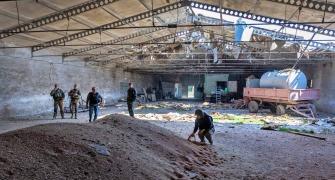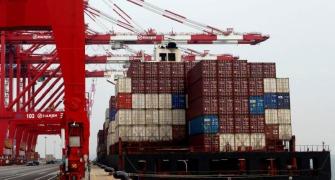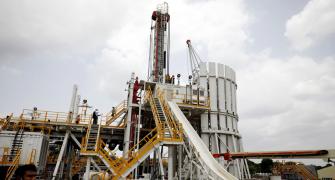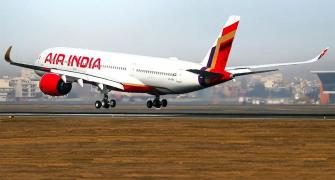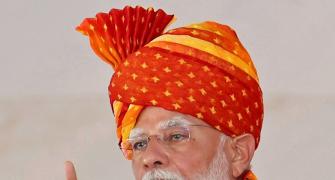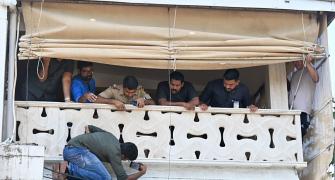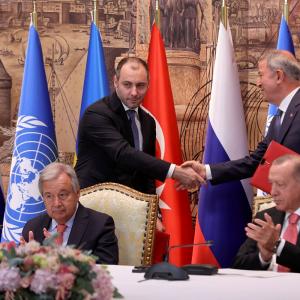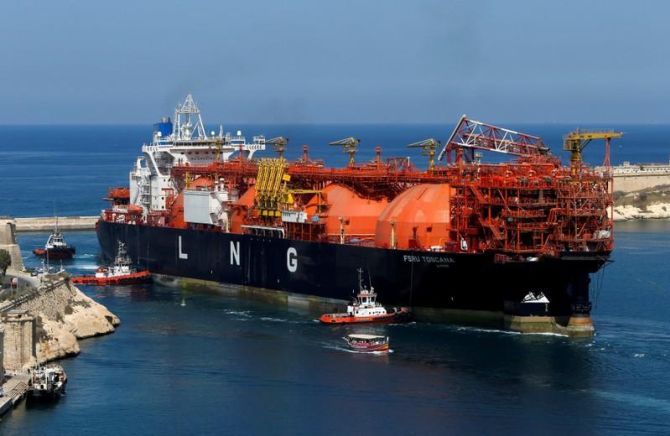If Russia and Ukraine can sit together and hammer out a 'Black Sea Initiative' deal for much needed food shipments, surely, they should be able to address the madness of the larger military conflict?
If you have the ability to see how you hurt the world by your actions, why do you fight in the first place, asks Shyam G Menon?
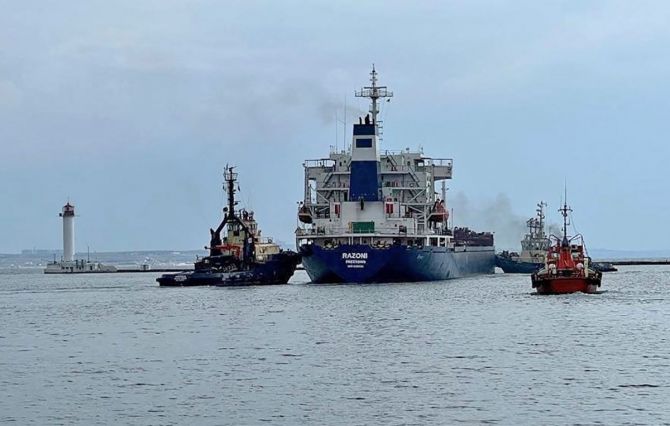
The recent news of the United Nations, Ukraine, NATO and Russia agreeing to a deal that would allow shipments of grain and fertiliser to ease the strain on global food supply caused by the Russia-Ukraine war is a heartwarming development in world dragged to gloom by short sighted autocrats and their supporters.
It reminds us that the UN, although a shadow of its former self, can regain relevance.
The need for such an agency is sorely felt in our times invested in aggression, leaving only a minority to speak up for peace, human rights, personal liberties and diversity.
Notwithstanding its limited tenure, the deal also raises hopes of an end to the war.
If they can sit together and hammer out this deal for much needed food shipments, surely, they should be able to address the madness of the larger military conflict?
However, it is the details mentioned in reports of the deal that should engage us more.
On the one hand, the deal called 'Black Sea Initiative,' sensible as it is, makes momentary gentlemen of all the actors scripting the conflict.
It would seem as though they have gallantly stepped aside for a while, leashed in their martial posturing to permit the world's needy a chance to feed.
On the other hand, it raises the question -- if you have the ability to see how you hurt the world by your actions, why do you fight in the first place?
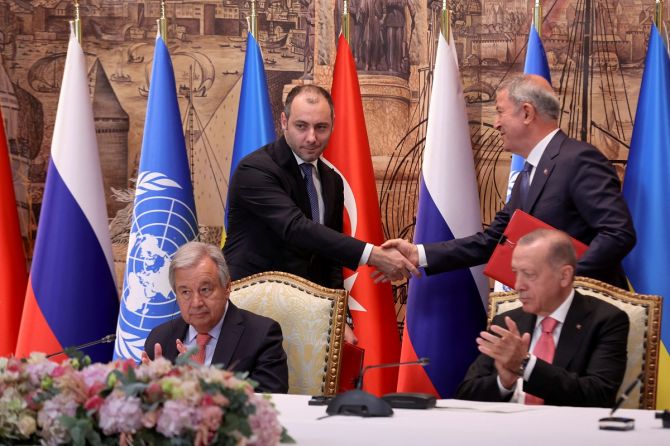
Black Sea Initiative
In its report on the deal, Reuters said according to the UN World Food Programme, some 47 million people have moved into a stage of 'acute hunger' due to the fall-out of the war.
'Ukraine needs to empty its silos ahead of a coming harvest, while more exported fertiliser will avoid lower global yields for coming harvests. The United Nations and Russia also signed a memorandum of understanding committing the UN to facilitating unimpeded access of Russian fertiliser and other products to global markets,' the Reuters report said, adding that according to one of the UN officials who briefed the media, the aim of the agreement is to provide 'some kind of solace to the global south'.
As per Wikipedia, the population of Ukraine is 44.1 million and that of Russia, 144.1 million. Taken together, their population comes to 188.2 million people.
The inability of these two countries to peacefully resolve their problems has dragged 47 million people -- another Ukraine in short -- into a stage of acute hunger.
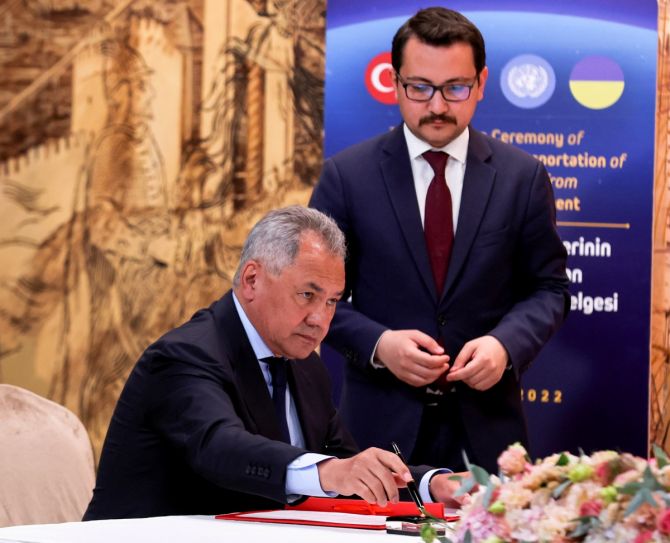
Given Russia was the aggressor (that is what one sees, if the events leading to the war are revisited), one could say this is the price of Vladimir Putin's take on neighbourhood and the world.
The onus also rests on both sides of the divide authored by the armed conflict -- the side that imposed sanctions to counter Russian aggression, causing additional disruptions in the movement of global trade (over and above those triggered by the pandemic) and the side that supported Russia or indulged in trade with it to capitalise on temporary market advantages without spelling it out straight and clear to the aggressor that the war must be stopped.
In fact, compared to earlier regional conflicts in which some of the participating nations were weak from start or reduced to rubble, Russia managed its oil business through the Ukraine war and its accompanying sanctions such that it registered improved revenues.
To that extent, this hasn't been merely a military conflict.
It has been a display -- by countries central to the conflict and on the periphery -- of how global uncertainty may be managed opportunistically.
It is a bizarre ballet around the dead and the injured; a dance of money challenging the meaning of humanity.
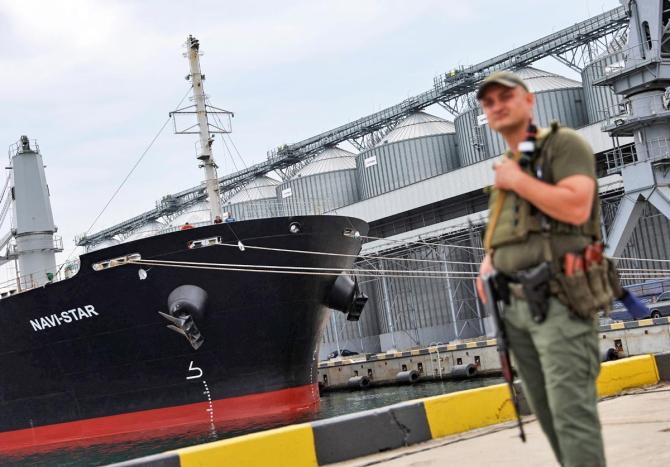
An ill-timed war
Assuming humanity hasn't succumbed entirely to military strategy and commercial instincts and still has some sensitivity left, 2022 was among the worst years to stage a conflict.
Climate change was already causing poor harvests.
On top of that, from early 2020 onward the world was walloped by the COVID-19 pandemic with major disruptions in trade to boot.
There were severe problems in the supply chain. There was short supply of commodities, critical inputs and the threat of inflation.
The Russia-Ukraine war was perfect spark for the tinder lying around.
In a mid-July report on the looming food shortage (available on YouTube), The Economist pointed out that troubles prior to the Russia-Ukraine war were sufficient to make global wheat supply dip for the first time in four years.
When war broke out, an estimated 25 million tons of corn, equivalent to the supply needed for the world's less developed countries, lay trapped in Ukraine.
In the wake of war, fuel prices soared, inflation made its presence felt in households worldwide and eventually, access to adequate food became tough for economically weak nations.
Worse, the war and its multiple impacts would have given governments everywhere a convenient fig leaf to hide their misguided economic policies under.
You could blame everything on the war. That was Putin's gift.
Viewed so, the specter of gas shortage in Europe as a fallout of sanctions imposed on Russia – it is a major concern in the western media - pales in comparison to how the war has impacted a whole world in times of globalization.
It underlines the need to bring the ongoing stand-off to a conclusion.
At stake is not only food but inflation and in nations resorting to the fig leaf of this war to cover up for their policy blunders, responsible governance.
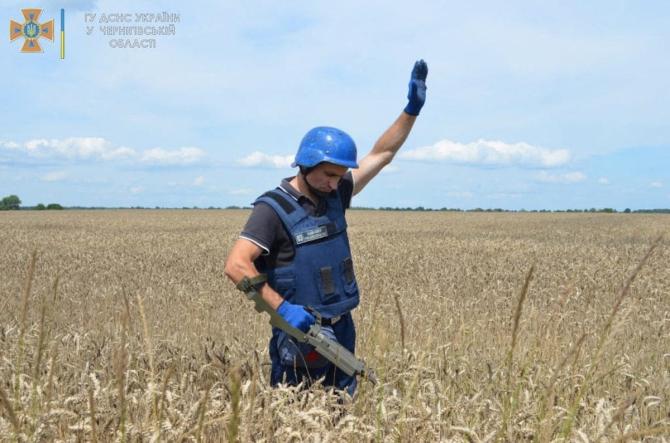
A faded UN and war's many uses
The only agency around that can still represent all of us in talking nations out of mutual hostility, is the UN. It is arguably in a bad shape. Of late, what it says carries little weight.
Member countries, steered by their respective governments and their agendas, choose to listen to the UN's suggestions or play deaf.
Part of the blame must belong to the UN too.
Working for it has become less about serving humanity and more an act of enjoying high position and great salary.
These trends were bound to make the UN fade, dilute the respect it once commanded.
Had its standing been rooted in principles and prompt action, then the Russia-Ukraine war would probably have been nipped in the bud.
Instead, over the past few decades, we had several conflicts worldwide persisting like private businesses with eloquent running commentary alongside from military strategists and career diplomats.
We measured conflicts on the strength of potential economic consequences instead of the clearly visible human misery.
Thus, conflicts in Africa typically don't count (subject to its mineral wealth becoming critical to tomorrow's world just as oil is for today's), Afghanistan could fester, the Middle East quickly captures our attention because conflict there causes fuel price shocks, the Balkans are a traditional flashpoint at the doorstep of western Europe but utter peace in the region questions the existence of NATO and a militarily strong Russia.
In the same vein, who would want absolute peace in South Asia, where muscle is the new brain? Sample fortress China -- under the thumb of its Communist party, it risks an identity crisis if it doesn't pester others to be pestered in return.
If not for its military and periodic missile launches, would we remember North Korea? If we game most conflict scenarios in our head, we see things getting countered and devolving to checkmate.
Needless to say, conflict in the age of nuclear weapons has become a sort of dark comedy; it is choreographed to keep abject annihilation at bay and yet provide scope for battle. Who are we fooling?
Chess games of a perverse politics
Still, we played on so till the mindset authoring such chess games acquired the confidence to host a Russia-Ukraine war even if its price was to be 47 million people cast into acute hunger.
Many of them, not even from the immediate geography of conflict.
If this cannot be a wake-up call for humanity and the UN to check the type of perverse politics engulfing the world, we are in for a lengthy depression.
Not the economic sort, but the mental kind.
It is hard to have a human brain and behold such a world as its handiwork. Or maybe, that's why we are trading brain for muscle. Muscles don't feel depressed.
Shyam G Menon is a Mumbai-based columnist.
Feature Presentation: Rajesh Alva/Rediff.com

